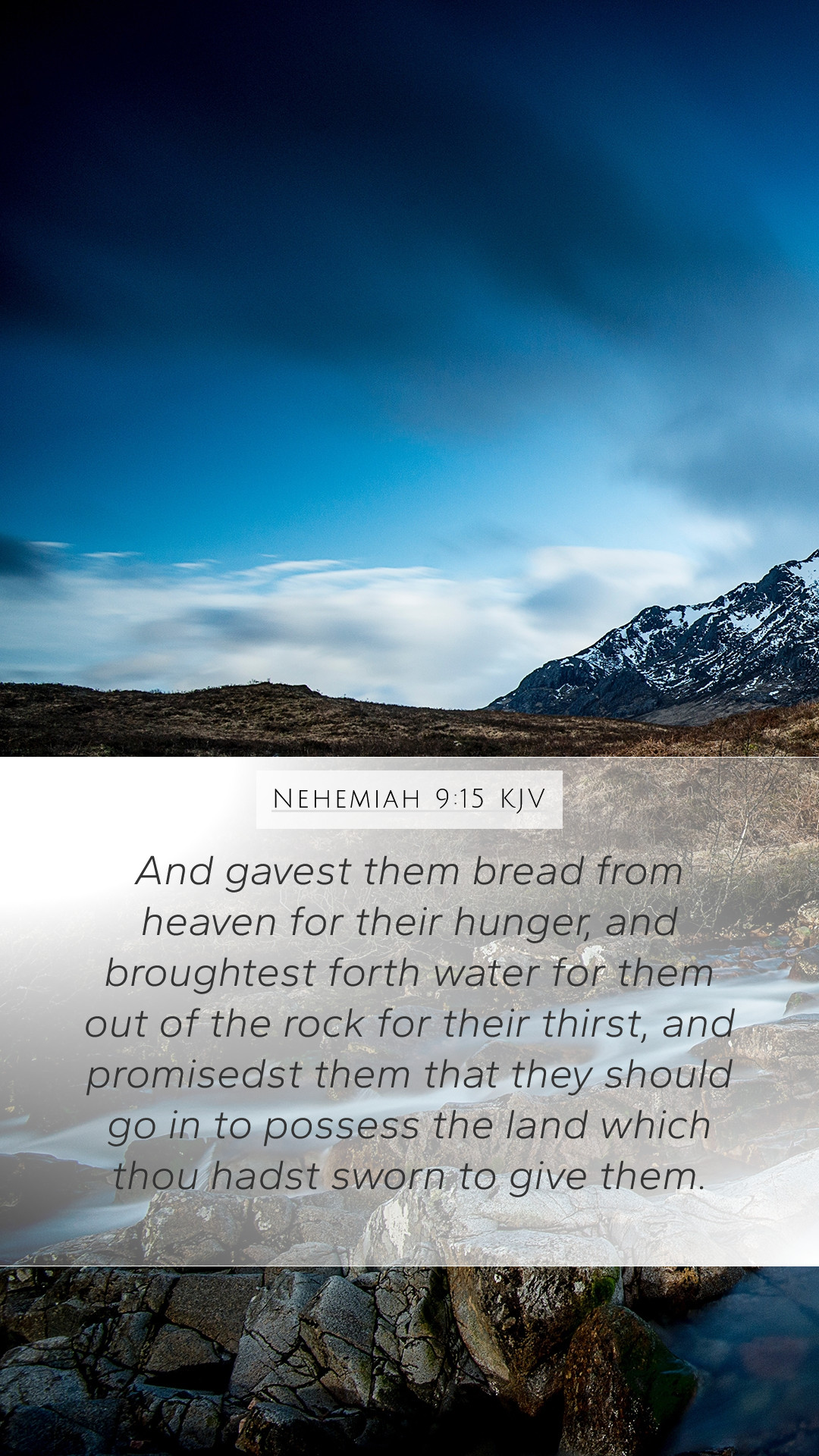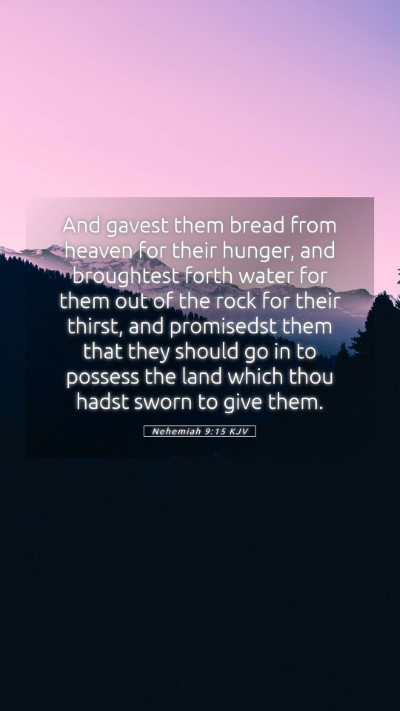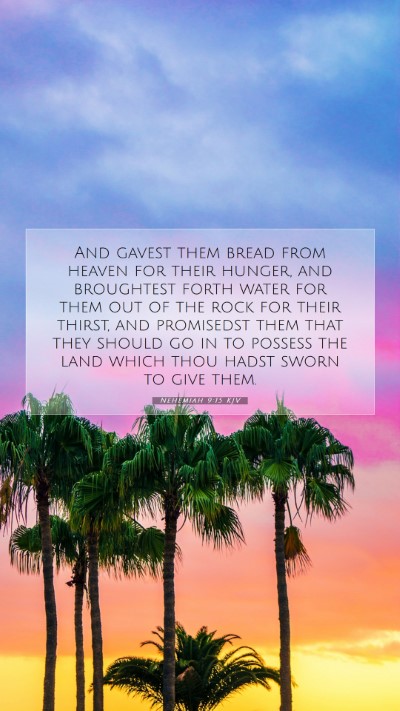Old Testament
Genesis Exodus Leviticus Numbers Deuteronomy Joshua Judges Ruth 1 Samuel 2 Samuel 1 Kings 2 Kings 1 Chronicles 2 Chronicles Ezra Nehemiah Esther Job Psalms Proverbs Ecclesiastes Song of Solomon Isaiah Jeremiah Lamentations Ezekiel Daniel Hosea Joel Amos Obadiah Jonah Micah Nahum Habakkuk Zephaniah Haggai Zechariah MalachiVerse
Nehemiah 9:1 Nehemiah 9:2 Nehemiah 9:3 Nehemiah 9:4 Nehemiah 9:5 Nehemiah 9:6 Nehemiah 9:7 Nehemiah 9:8 Nehemiah 9:9 Nehemiah 9:10 Nehemiah 9:11 Nehemiah 9:12 Nehemiah 9:13 Nehemiah 9:14 Nehemiah 9:15 Nehemiah 9:16 Nehemiah 9:17 Nehemiah 9:18 Nehemiah 9:19 Nehemiah 9:20 Nehemiah 9:21 Nehemiah 9:22 Nehemiah 9:23 Nehemiah 9:24 Nehemiah 9:25 Nehemiah 9:26 Nehemiah 9:27 Nehemiah 9:28 Nehemiah 9:29 Nehemiah 9:30 Nehemiah 9:31 Nehemiah 9:32 Nehemiah 9:33 Nehemiah 9:34 Nehemiah 9:35 Nehemiah 9:36 Nehemiah 9:37 Nehemiah 9:38


Bible Verse Commentary
Henry emphasizes that God graciously provided bread from heaven, referring to manna, which served as both a physical sustenance and a spiritual lesson of reliance on God. He elaborates on the significance of divine provisions in times of need, comparing it to daily nourishment that believers require through God's Word.
Barnes points out that the reference to water from the rock symbolizes the spiritual sustenance that Christ provides. Just as the Israelites received water to quench their physical thirst, believers receive Jesus as the living water, signifying eternal life and satisfaction of the soul.
Clarke notes the historical context of this verse, reminding readers that the hunger and thirst of the Israelites were met in miraculous ways. He suggests that this verse serves as a reminder of God's unchanging nature and His willingness to provide for His people in their times of distress.